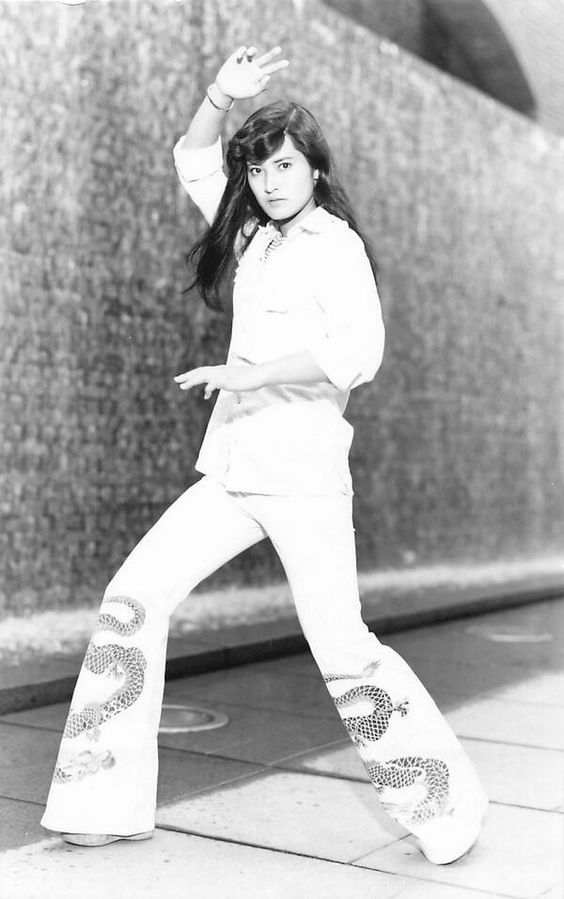#etsuko shihomi
Text
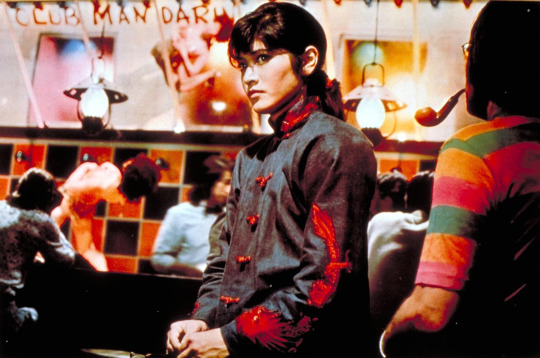

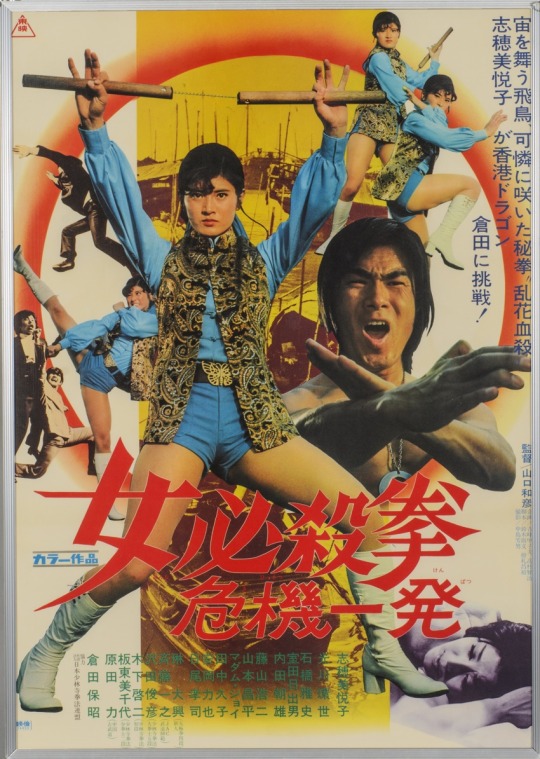
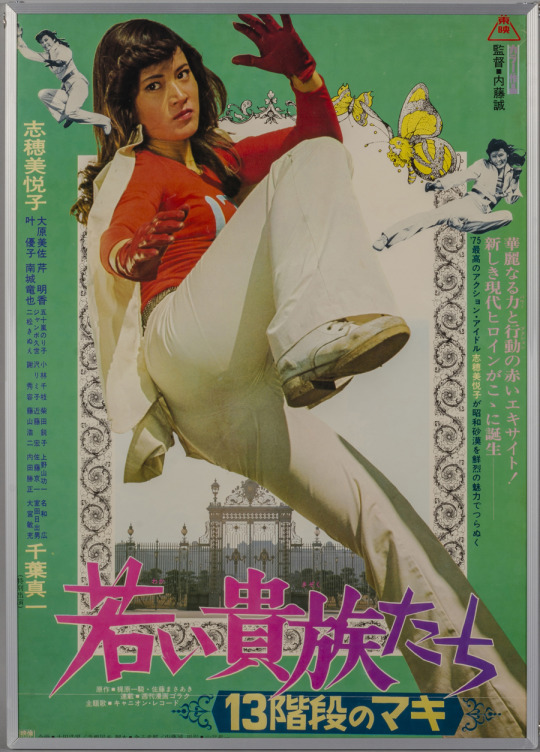

Happy birthday to Etsuko Shihomi 志穂美 悦子
#志穂美 悦子#etsuko shihomi#sister street fighter#jac#japan action club#japanese actress#japan#martial arts#japanese actor#japanese cinema#japanese film#japanese movies#japan film club
43 notes
·
View notes
Text

#Etsuko Shihomi#Karate#Martial arts#Martial arts movies#Martial arts cinema#Japanesecinema#Asiancinema
119 notes
·
View notes
Text
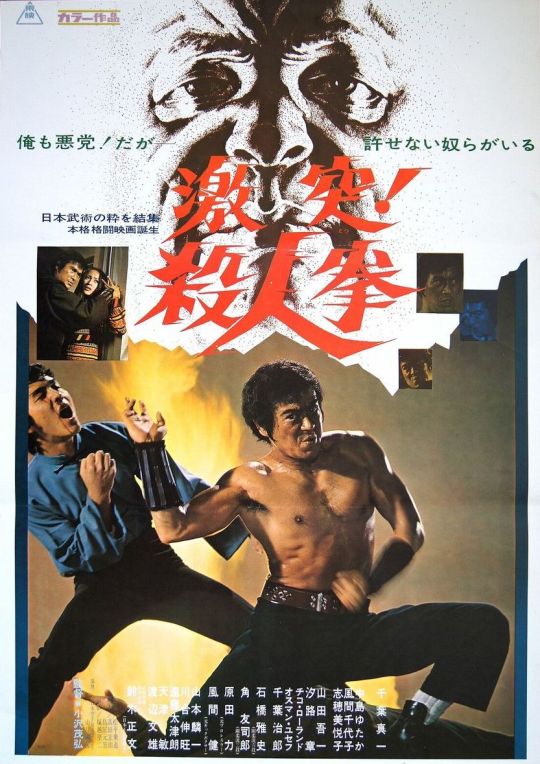

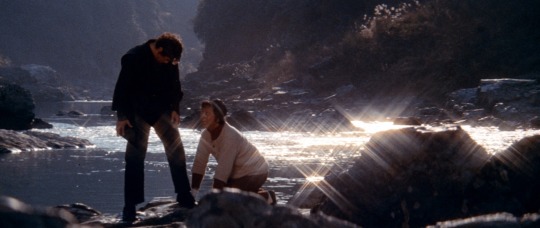



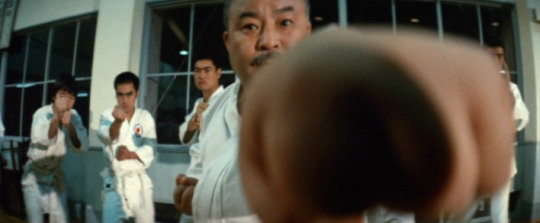
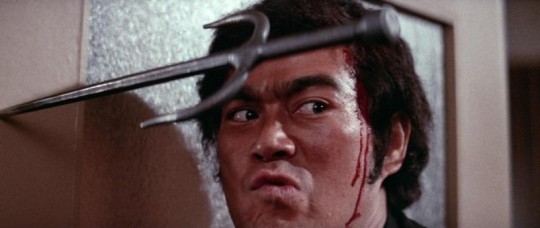
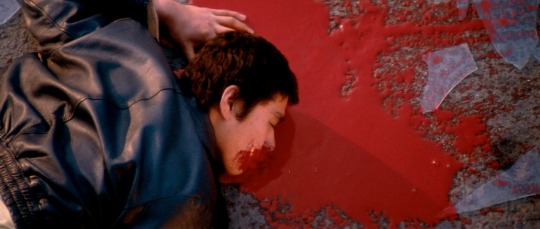

Gekitotsu! Satsujin ken (The Street Fighter, 1974)
"But don't worry, Mutaguchi, there's an evil code of conduct - and I'm very tight-lipped."
#Gekitotsu! Satsujin ken#the street fighter#street fightin' cinema#japanese cinema#sonny chiba#shigehiro ozawa#kôji takada#motohiro torii#shin'ichi chiba#yutaka nakajima#goichi yamada#chiyoko kazama#etsuko shihomi#nobuo kawai#akira shioji#chico lourant#tony cetera#osman yusuf#jirô yabuki#toshiaki tsushima#blood tw#outrageously violent martial arts madness from the master himself Sonny Chiba. US importers were looking for a new Bruce Lee after#the star's untimely death‚ and this was the film they decided would revitalise the genre; dubbed and cut it was a smash hit (and became the#first film to earn an X rating in the US for violence alone). it's easy to see why; this is thrilling stuff even if Chiba's amoral#mercenary is a world away from Lee's dignified everyman (in the first act he literally sells a woman as a sex slave; you'd never have#caught one of Lee's characters doing that). the action is spectacular and grotesque‚ including a cut to x ray for a man's shattering skull#(the origin of those fatality screens in fighting games). it also leant it's name to the Street Fighter game series in an unofficial#capacity. lurid and nasty but a lot of fun and by god Chiba was a hell of a performer: where Lee was all about speed and control‚ Chiba is#like a wild animal‚ running up people's bodies and fucking them up while he snarls and pants. an acquired taste perhaps but i dig it#and it's not just action! Chiba brings real pathos to scenes of loss in the last act‚ and his murky motivations make for intriguing viewing
15 notes
·
View notes
Text
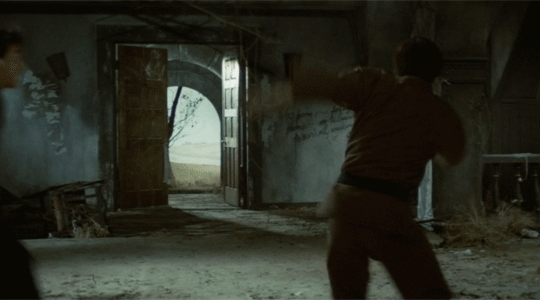
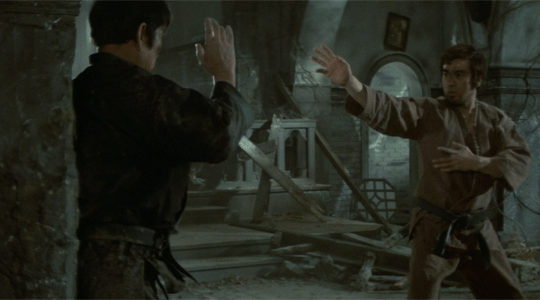
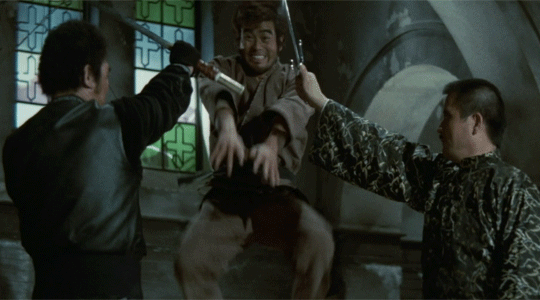
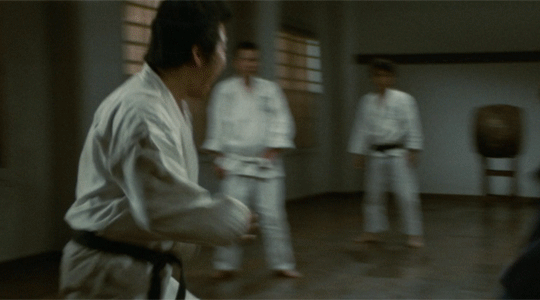
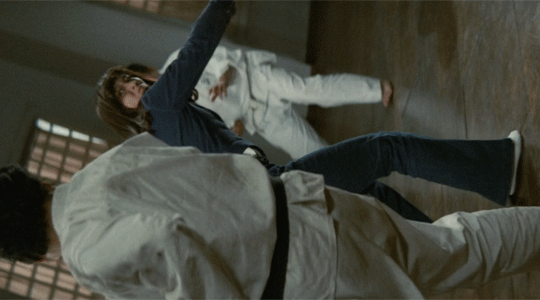
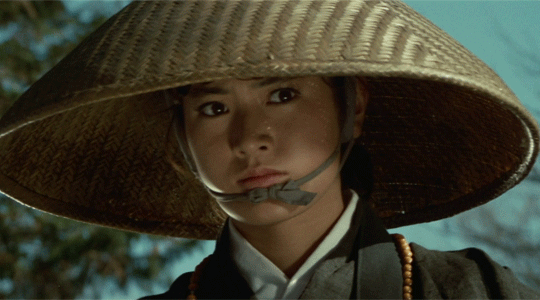
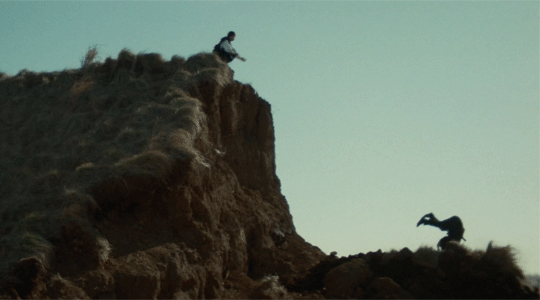
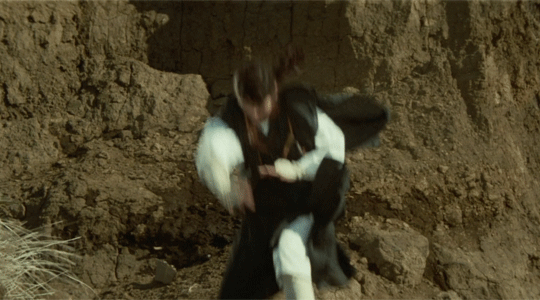


Sonny Chiba's Dragon Princess
必殺女拳士 (1976)
#Sonny Chiba's Dragon Princess#Dragon Princess#必殺女拳士#Etsuko Shihomi#shinichi chiba#志穂美悦子#千葉真一#Yutaka Kohira#小平裕#Japan#movie#gif#1976
4 notes
·
View notes
Photo
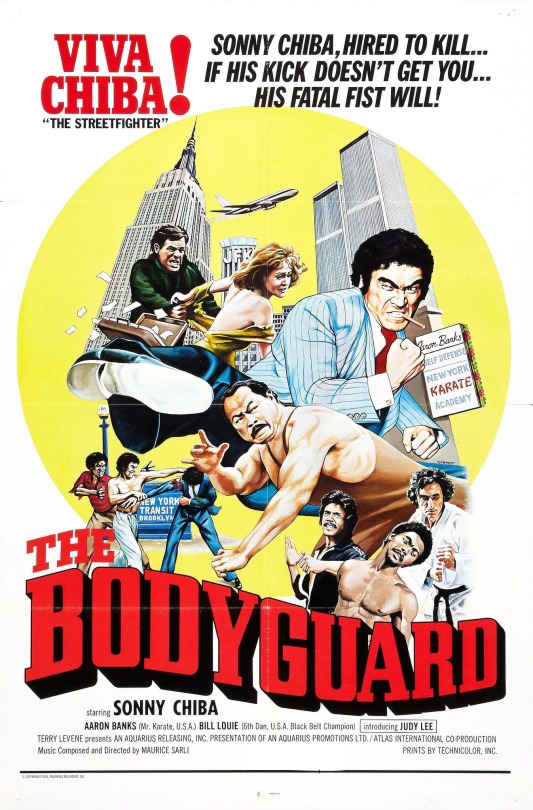
Bodyguard Kiba - Ryuichi Takamori 1973
20 notes
·
View notes
Photo

Sister Street Fighter (Kazuhiko Yamaguchi, 1974)
40 notes
·
View notes
Photo
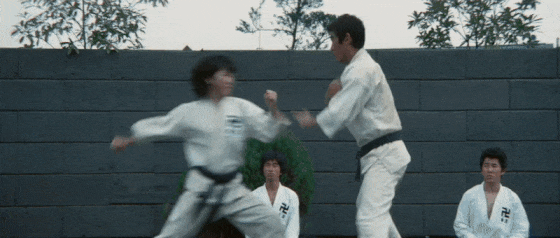
千葉真一さん、 ありがとうございます。
千葉真一 Sonny Chiba
1939年1月22日 - 2021年8月19日
女必殺拳 Sister Street Fighter 1974
8 notes
·
View notes
Text
On November 9, 2019 Sister Street Fighter and Lady Street Fighter were screened as a double-feature on TCM Underground.
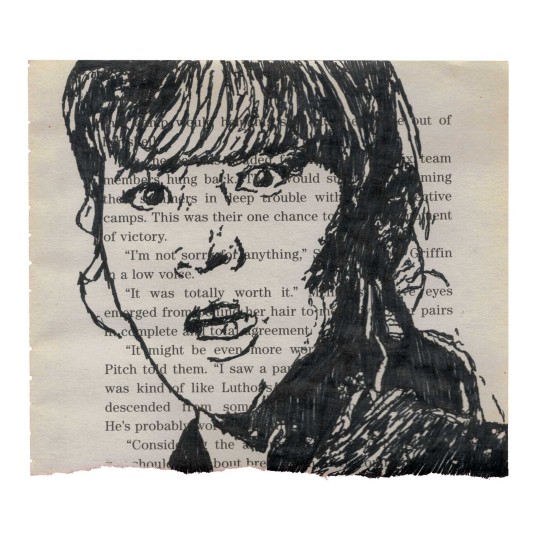

#tcm underground#sister street fighter#lady street fighter#kazuhiko yamaguchi#james bryan#martial arts films#etsuko shihomi#renee harmon#action thriller#revenge thriller#70s movies#midnight movies#movie art#art#drawing#movie history#pop art#modern art#pop surrealism#cult movies#portrait#cult film
2 notes
·
View notes
Text
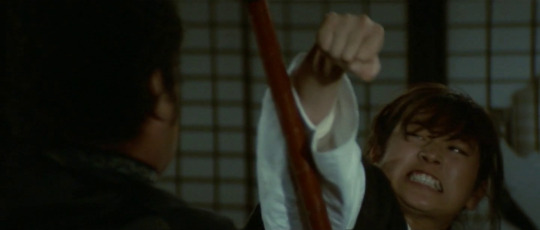
Dragon Princess (Kohira Yutaka, 1976)
Whatever happened to karate? It seemed like it was all that was available when i was a kid and now looking at martial arts options for my kid it's Brazilian Jiu-Jitsu, some face-pounding MMA or bust. And what happened to it as a film genre? It looks so stylish and graceful in a fight scene. So does Shihomi Etsuko. Here's a potboiler movie to showcase her talents
2 notes
·
View notes
Photo
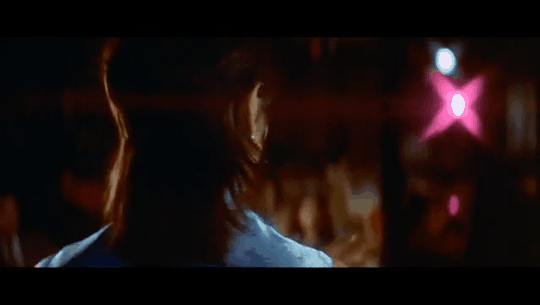
"Etsuko Shihomi" of movie "Gorgo 13 Assigment Kowloon"
#志穂美悦子 #ゴルゴ13
2 notes
·
View notes
Text
Movie Review | The Street Fighter (Ozawa, 1974)

After the death of Bruce Lee, there was an attempt to market Sonny Chiba as his successor, yet comparing Lee's work to The Street Fighter and its sequels, their presences couldn't be more different. Lee's characters carried themselves with a certain dignity and swagger. Chiba's protagonist is brusque at the best of times, animalistic when he goes to work. Lee as a fighter was graceful, measured. Chiba, as the American poster for The Street Fighter suggests, fights dirty. When you see Lee in the climaxes of Enter the Dragon and The Way of the Dragon, you can see how storytelling, mise en scene, philosophy and choreography come together. Chiba in combat is a man possessed, an instrument of violence. If Klaus Kinski could do karate, one expects it would look like this. Both of their films have their share of blood, but Chiba relishes any opportunity for additional brutality.
And I think that gets to the fundamental difference between the characters they played. Lee's heroes are just that: heroes. There's a reason he's been an aspirational figure for decades. In these movies, Chiba's character is at best morally compromised and at times capable of evil. When The Street Fighter opens, Chiba rescues a death row inmate from execution. But after the inmate's brother and sister are unable to pay up, Chiba gets in a fight that leads to the brother's gruesome death (Chiba's culpability is questionable as the brother accidentally leaps out the window) and then sells the sister into sexual slavery (Chiba's culpability is undeniable in this case). This is supposed to be our hero? But as the movie progresses, we learn that Chiba himself was once the victim of great cruelty, his father having killed by Japanese occupying forces in China after being suspected of espionage. The movie brings this up not to excuse him but to frame him as an arguably tragic figure. He metes out cruelty because it is all he knows.
All of this creates a certain amount of poignancy in his efforts to do noble deeds, which frequently end in tragedy, although a certain patronizing quality does emerge in Chiba's treatment of the female characters. The second movie, The Return of the Street Fighter, has him warm up to a denim-clad orphan whom he tries to keep at an arm's length, while the last movie, The Street Fighter's Last Revenge, has him pushing away an interested suitor, telling her "You're not the girl for Dracula." (He then puts on a mask with fangs, and at several other points dramatically removes his mask Mission: Impossible style.) He also turns down a request to take another mercenary played by Etsuko Shihomi under his wing, with this amusing but also offensive exchange.
"You fight well for a woman."
"So what if I'm a woman? I'm Huo Fong, a fire bird from Taiwan. A lone wolf killer like you."
"I don't care if you're a fire bird or a grilled chicken."
"What?"
"You're ten years too early to fight against me. Put on your makeup and start husband hunting. You're not too bad actually."
Shihomi also played the woman who was sold into sexual slavery in the first movie, and no, this isn't the same character. Shihomi and Chiba reunite in Sister Street Fighter, and while I don't recall their character names, I'd wager they played different ones there too, because if they were the same, Shihomi's character would have had a superhuman ability to turn the other cheek.
I think a political dimension can be read into the movies as well. The first movie has Chiba face off against an international crime syndicate, the second one brings in a sort of non-aligned movement of karate clubs in different countries, and the third has a political corruption plot. How coherent this is in terms of a left-right spectrum I cannot say, but it evoke a certain disaffection that might have been felt in Japan at that time. In that context, Chiba's perverse professional code comes into focus. If you pay him, he will do the job, no matter how dirty. If you try to rip him off, watch out!
But ultimately these movies are an excuse to watch Chiba fuck people's shit up, and in that sense, they're quite diverting. These are '70s Toei productions and as a result feature some very handsome widescreen cinematography, which makes the violence more startling. Chiba throws his opponents against the cramped edges of the frame in the rough and tumble fight scenes, which are punctuated with bursts of ultraviolence (an x-ray shot of a crushed skull, eyes popped out by a punch to the back of the head, other assorted Fulcian eye trauma, castration, ripped throats and more). In that sense, the first film is the best as it metes out the gore with the most frequency and gusto. (It was famously slapped with an X rating for violence alone.) The climax, drenched in rain for added dramatic flair, has Chiba tearing out his opponent's throat and holding it up to the camera in a flourish that imitates 3-D. Folks, this is what we go to the movies for.
5 notes
·
View notes
Text
Sister Street Fighter (dir. Kazuhiko Yamaguchi)
-Jere Pilapil- 8.5/10
There is a certain type of action movie that I’m a sucker for, and that’s really the type that goes all-out, getting bonkers stupid in its pursuit of a sublime kind of hyper-reality, where, say, a team will parachute sports cars out of an airplane to intercept a guarded convoy. In some ways, this is easier to achieve in martial arts: you can kind of get by introducing crazy characters with crazy weapons and having the hero defeat them in creative ways. Kazuhiko Yamaguchi’s Sister Street Fighter is this kind of movie, and it’s mostly glorious, giving us a host of wild characters that our protagonist mostly treats as jobbers in her quest to rescue her brother.
Oddly, this is a spin-off of the Sonny Chiba classic The Street Fighter, but not really. Sure, Sonny Chiba is in this, and it has “Street Fighter” in the title. But he’s not playing the same character here, even in a limited supporting role. Etsuko Shihomi stars as Koryu, the titular sister, whose brother went undercover to bust a drug cartel led by Ryozo Hayashi (Shohei Yamamoto). He’s gone missing, so Koryu sets out to find him. That’s the gist of the premise, and the movie deftly switches between Koryu and Hayashi as pursuer and target. The search pulls in many characters, a martial arts school, more hired guns on behalf of the cartel, and even a priest with a harpoon gun.
That’s the secret to Sister Street Fighter: it never stays in one place for long. It’s mostly a by the numbers martial arts flick, but sped up. Fight scenes are good enough to be compelling (honestly, probably better than in the original The Street Fighter) but not dragged out to epic length. It’s twisty enough that some characters that seem like they should be a big deal are defeated swiftly (or in one case, forgotten, unless I missed something). Koryu is kind of overpowered: she’s of the Bruce Lee hero’s mold where her skill is unparalleled, but the movie is just throwing wave after wave after wave of obstacles in her way. But Shihomi is a compelling lead, and watching her beat the hell out of all manner of bad guy is a thrill.
The one thing that takes me out of this movie is a rape scene of the worst kind. It’s (I’d argue) unnecessary to the plot, and violently interrupts the otherwise swashbuckling style, pulling things to a dead halt. I’m sure in 1974 standards, it probably sticks out less, but it’s even the worst kind of rape scene, filmed luridly to provide the movie with a couple extra seconds of bare breasts. It’s a very obvious miscalculation in what is otherwise a worthy iteration of the The Street Fighter style, maybe even improved one.
0 notes
Photo

志穂美悦子
1978年
109 notes
·
View notes
Photo
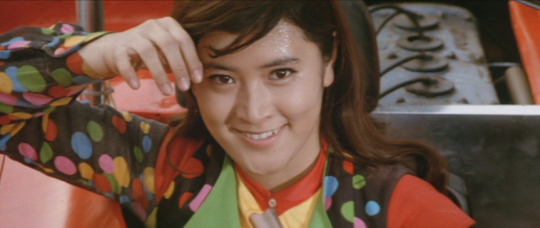

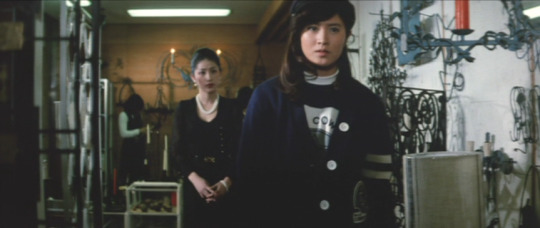
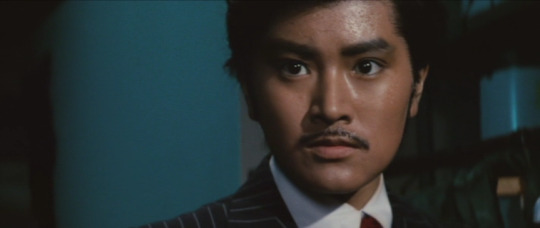
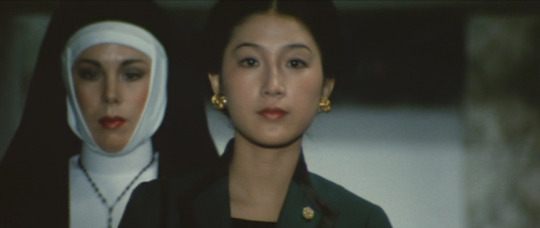



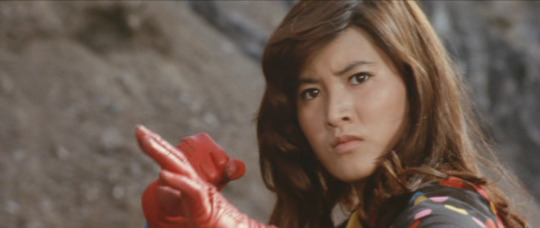
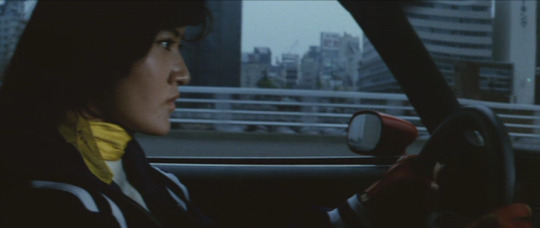
The Great Chase (1975)
『華麗なる追跡』
Directed by Norifumi Suzuki 鈴木 則文
#The Great Chase#華麗なる追跡#Norifumi Suzuki#鈴木 則文#Etsuko Shihomi#志穂美 悦子#toei#japanese film#japanese movies#japanese cinema#martial arts films#martial arts movies#action movies#japan action club#movies#cinema#film#screencaps#japan film club#action cinema#action film
31 notes
·
View notes

